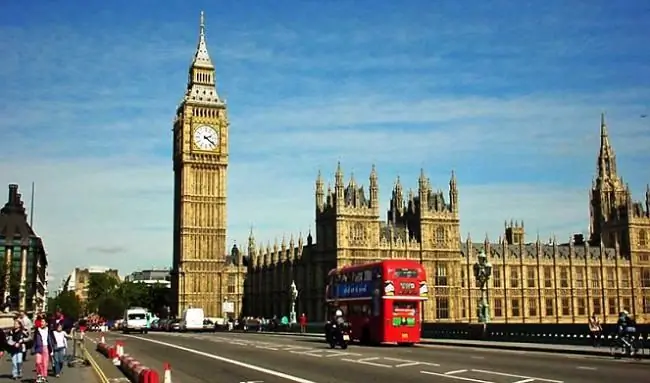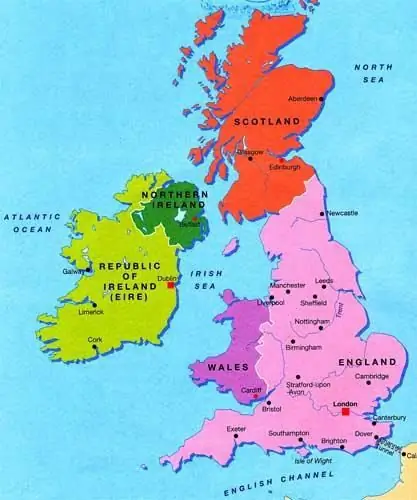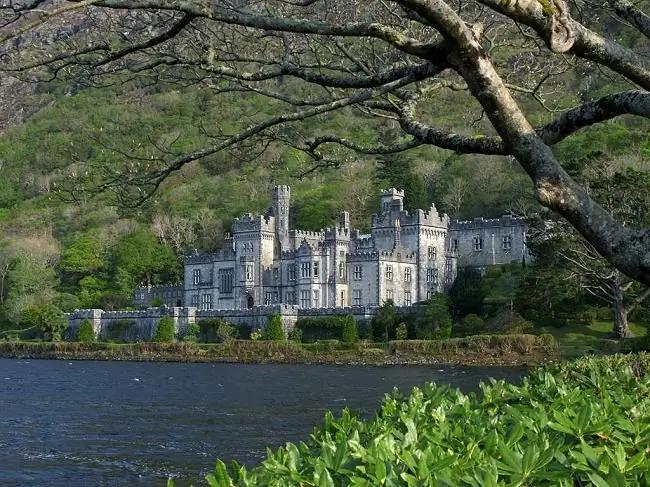Everyone is used to thinking that the United Kingdom of Great Britain and Northern Ireland is one country. But this is not a completely correct statement. The kingdom includes four historical and geographical regions. The United Kingdom includes such territories as England, Scotland, Northern Ireland and Wales. Thus, the kingdom occupies most of the area of the British Isles. It is also important that since 1922 Ireland has been an absolutely autonomous country within the United Kingdom.
It is impossible not to mention the Isle of Man and the Channel Islands. True, these territories are administratively independent parts of the kingdom.

Description
Each territory that is part of the UK has its own culture, traditions, sights that have accumulated over the centuries. The official language is English, but there are peculiar exceptions for each administrative and political part. So, today the population of the Welsh villages communicates in the ancient Welsh language.
The heritage of the territories that make up the Kingdom of Great Britain is almost nothing like each other. They differ not only in history, composition of the population and the structure of government, but also in the education system, religion and even climate.

A few main points that characterize the UK as a whole:
- The currency is the pound sterling.
- Religions - Anglicanism, Catholicism and Presbyterianism.
- Great Britain is famous for talented actors, musicians, singers, writers, athletes, scientists.
- Kingdom is considered one of the most popular places for shopping. The country is very rich in brands such as Burberry, which are known all over the world, shops, boutiques and street markets where you can find vintage clothes and match them with accessories.
England
The largest administrative and political part that is part of the UK is England. In turn, it has nine separate regions, each with its own unique traditions and culture, bewitching bustling metropolitan areas such as London, and beautiful peaceful villages such as Cornwall. The official language is English. There are thirty-nine counties, six metropolitan counties and an administrative unit called Greater London.
Every year millions of tourists from all over the world come to England, because it is suitable for both noisy and fun holidays, as well asand for romantic walks. There are more than 20 attractions that are included in the UNESCO World Heritage List.
Scotland

There are few places on our planet that can compete with Scotland. Here are large cities such as Glasgow, deep lakes and picturesque mountains. This country is divided into nine regions, which contain approximately eight hundred islands, three hundred of which are uninhabitable.
During the celebration of Burns Night, which falls on January 25, and St. Andrew's Day (November 30), live music is heard throughout the streets.
Scotland is part of the UK to this day. In 2014, they held a referendum on secession from the state. But 55.3% of the population opposed the declaration of independence.
The official languages are English, Anglo-Scottish and Scottish Gaelic.
Northern Ireland
The smallest autonomous territory that is part of the UK is Ireland. It consists of twenty-six districts. Despite its small size, it has a very rich nature. There are high mountains, flat valleys, forests and even an inland sea. In addition, the country is famous for its history, culture, mythology and vibrant musical life. At venues, in clubs and concert halls at any time of the year, you can enjoy the music of both Irish performers and visitors from all over the world.
Northern Ireland as part of the UK has three official languages:Irish, Ulster Scots and, of course, English.

Wales
There is no place on Earth that would be even slightly similar to the island nation of Great Britain. The composition of the countries includes a rather unusual administrative and political part - Wales. The peculiarity lies in the fact that its inhabitants still communicate with each other in one of the oldest languages in the world - Welsh. The second official language is English. In terms of territory, Wales ranks third among the countries of Great Britain.
Here registered five areas with unique nature, as well as three national parks. Locals call Wales "the country of castles" because of the impressive number of ancient fortresses (about 600 castles).






